The avocado season in Morocco came to an end in April and was marked by good volumes exceeding 40,000 tons, and good quality of the produce allowing 90% of the harvests to be exported.
Abdelmoumen El Achkar, CEO of ECOMAC, an avocado producer and exporter, reflects on market trends and commercial characteristics of the avocado industry in Morocco, especially this season.
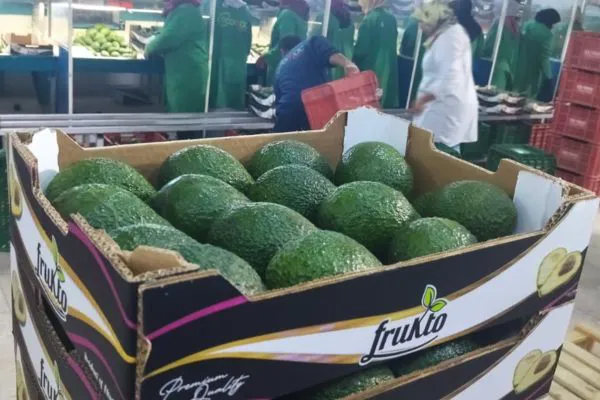
Abdelmoumen says, "The avocado sector is still relatively new in Morocco. The actors of the sector, be they producers, exporters, or intermediaries, are still gaining experience, and the industry is self-regulating and improving from season to season, despite the persistence of certain problems and harmful practices that are normal in an open economy."
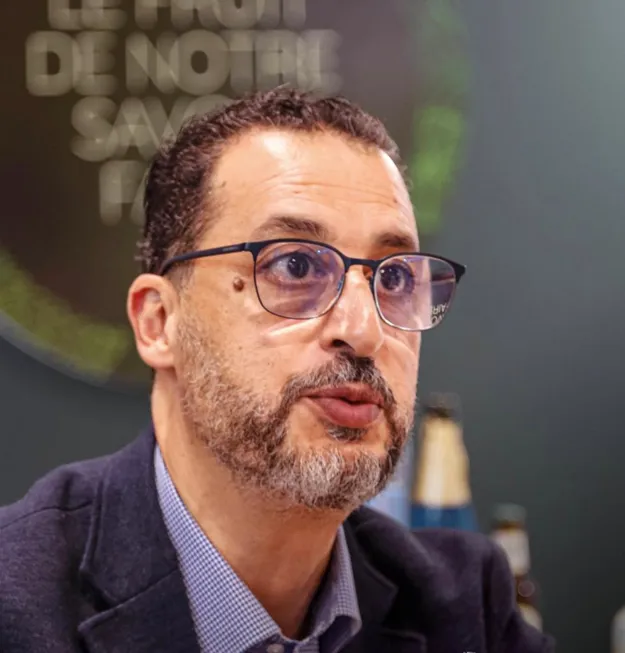 Speaking of harmful practices on the part of some actors in the sector, Abdelmoumen refers to speculative behavior that is increasing in the avocado industry more than other crops.
Speaking of harmful practices on the part of some actors in the sector, Abdelmoumen refers to speculative behavior that is increasing in the avocado industry more than other crops.
Abdelmoumen says, "Not to be controversial or to point the finger to any part of the value chain of the avocado in Morocco, we do, however, note a speculative behavior that is the normal result of high demand faced to insufficient production. This behavior is much more present in the avocado sector because the fruit can be stored on the tree, and producers can wait for prices to rise before harvesting, unlike other crops. Price fluctuations were almost daily and unjustified last year. This is an opportunistic behavior that undermines the credibility of Moroccan producers and exporters, and that the market eventually punishes."
Abdelmoumen adds: "These harmful practices impacted our margins, adding to the rise of costs of transport and packaging products. As we have the moral and professional obligation to comply with contractual commitments with our clients and safeguard our credibility, this forced us to absorb the difference in prices occasioned either at the farm gate or when intermediaries behave in a predatory manner".
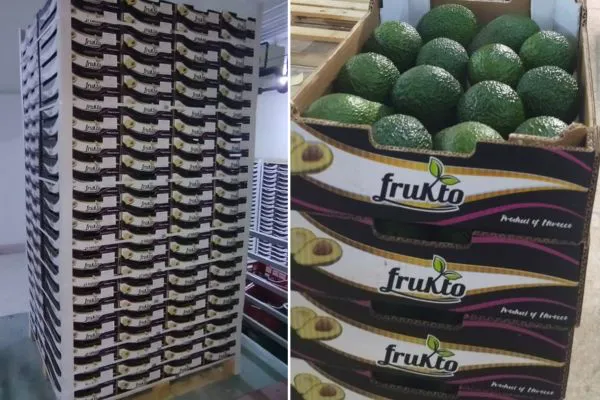
Moroccan avocado fruits remain some of the most expensive in the world, just after those from Spain. A price that does not necessarily reflect good positioning for Morocco, but rather a fortunate circumstances according to Abdelmoumen. He explains, "Moroccan producers indeed achieve a good added value, but it should be known that good winds are blowing for the Moroccan avocado currently and that it will not last forever. Our prices remain artificially inflated, especially due to the lack of medium and large calibers of fruits in other origins. In the future, producers will have to be more competitive."
Moroccan producers enjoy a better geographical position than traditional origins such as Colombia, Mexico, or Peru. This is what enables producers to compete with these avocado giants in the European market, according to Abdelmoumen. "Latin American deliveries are often accompanied by delays and logistical problems, while we can deliver in one day to Europe, whereas Mexico has the upper hand in the U.S. market."
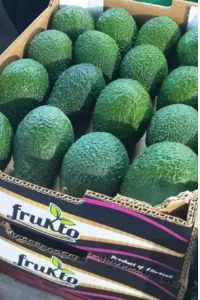 In addition, Moroccan production benefits from better quality and a greater abundance of sizes presentable in supermarkets, adds Abdelmoumen.
In addition, Moroccan production benefits from better quality and a greater abundance of sizes presentable in supermarkets, adds Abdelmoumen.
"We have more 12-14-16-18 calibers, and less 22-24, which was emphasized during the month of November 2022 when Moroccan exporters were able to beat their monthly export volume record, as big and medium calibers were nowhere else to be found. When an avocado shipment is delivered from Morocco, it is entirely marketable in supermarkets with no cases lost, while in a Colombian or Mexican shipment to Europe, 20-30% of the delivery will be a gap and will have to be destroyed or resold to food processors or other outlets at lower prices. But there are other parameters to take into account in terms of competition."
"Firstly, we must not forget that Spain is currently going through difficult weather conditions, and when these conditions improve, they will come back with large volumes," continues Abdelmoumen. "In the same category of quality and season as Morocco, there are also Israel and Colombia, which have good quality but an abundance of small sizes, but this could also change. Other origins are expanding and have a quality very similar to Moroccan produce, such as Lebanon and Portugal. We must not forget how an origin can emerge and conquer markets very quickly if there is government support, as has been the case in Kenya. Other countries could step in with production schedules that are simultaneous with Moroccan ones, and at much lower prices."
The European fallback on Moroccan avocados was also reflected in the varieties. According to professional sources, European customers have accepted, for the first time this year, the Lamb Hass variety from Morocco, while it was previously sold only in Russia and the Moroccan domestic market. Abdelmoumen sums it up thus: "So we don't know if customers come because they value the product or because there is too much need. Moroccan producers need to be proactive. And as volumes increase in the next years, they need to use price to stand out from the competition and build customer loyalty before they are forced to do so by the market."
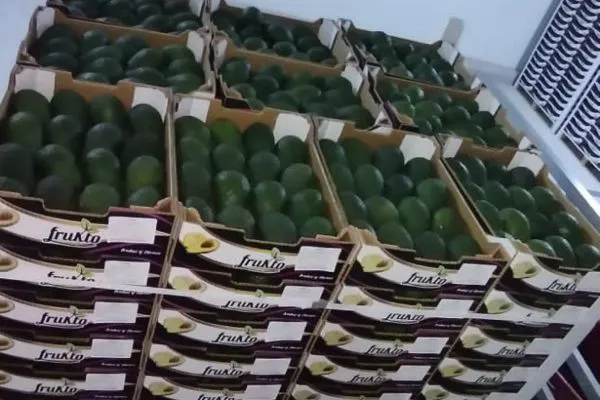
The season has also been marked by major events that have made waves in the trade channels, including the implementation of Brexit. For Abdelmoumen, who has been positioned in the UK market for a long time, "Brexit is resulting in increased cooperation between Morocco and the UK. Since its implementation, Moroccan agricultural exports have increased by 15% to the UK. British buyers can no longer go through European re-export hubs as it means more customs duties, so they are sourcing directly from Morocco, which creates a new market segment for Moroccan exporters, and this direct collaboration has also resulted in larger volumes. We need to deepen this cooperation by getting the necessary certifications and through more dialogue and B2B networking activities in the UK and Morocco."
Another event that has had ramifications on international trade is the outbreak of war in Eastern Europe and the sanctions on Russia, complicating exports. Abdelmoumen explains: "At the beginning of the war and the imposition of restrictions such as the SWIFT ban against Russian banks, we encountered big difficulties in supplying the Russian market. We tried to ship to the Netherlands for re-export to Russia, but it caused great logistical and administrative complications, and forced us to stop exports to Russia altogether. However, we could do without this market since we only export green skins (Fuerte and Zutano varieties) to Russia. These varieties are planted in small volumes in Morocco and used primarily for pollination purposes. The Russian market can also cut out Moroccan avocados since it is well supplied by Israel."
However, the war in Eastern Europe has caused great increases in costs for Moroccan avocado producers and exporters, says Abdelmoumen: "The transportation of a container to the Netherlands, for example, has gone up from 4000 to 6000 euros. The price of a pallet has gone from 7 to 12 EUR, and this is the case for all costs, including packaging, insurance, etc. The costs are so high that the margins of exporters became derisory, about 2%." 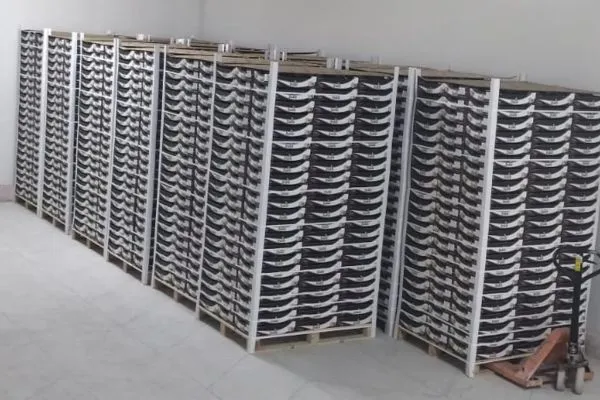
The only way to solve all these commercial constraints, including the cost of production, speculative behavior, and high prices, is to wait for the industry to mature in Morocco, says Abdelmoumen. "All the actors in the avocado value chain must be patient. The soft fruit industry, which started 30 years ago, had the same problems in its early days. As the industry matures, we will eventually find a stable market position, prices that better reflect production, and a more thoughtful and rational operations. Also, most importantly, the sector will become more integrated, as exporters will have to move into production to continue to exist, and producers will professionalize their operations to cut out the middleman, facilitating the emergence of aggregators in the industry."
This is the path that Ecomac is taking, assures Abdelmoumen. "We were one of the pioneers of the avocado industry in Morocco, with only 8 containers exported to the UK in 2014. Today, we have our own production operations with an acreage of 19 hectares and 200 hectares if you count the other members of our cooperative. We were behind 3000 tons of exports this season, or 7-8% of the national volumes, and are about to launch a new packing station with a capacity of 20000 tons."
For more information:
Abdelmoumen EL ACHKAR
ECOMAC
Tel: +212 661-085166
Email: [email protected]
